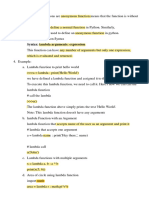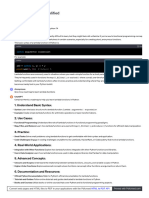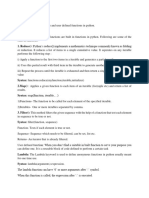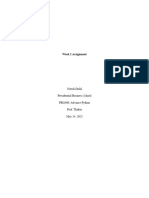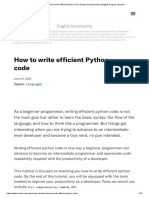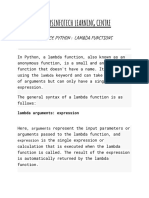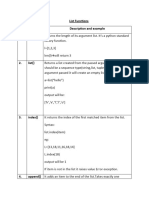0% found this document useful (0 votes)
38 views3 pagesMap, Filter, Reduce
A lambda function is an anonymous function that can take multiple arguments but only has one expression. It is commonly used with functions like map, filter, and reduce to transform, filter, or accumulate values from lists. Examples demonstrate how to use lambda functions with these higher-order functions to achieve various outcomes.
Uploaded by
vikkee493Copyright
© © All Rights Reserved
We take content rights seriously. If you suspect this is your content, claim it here.
Available Formats
Download as PDF, TXT or read online on Scribd
0% found this document useful (0 votes)
38 views3 pagesMap, Filter, Reduce
A lambda function is an anonymous function that can take multiple arguments but only has one expression. It is commonly used with functions like map, filter, and reduce to transform, filter, or accumulate values from lists. Examples demonstrate how to use lambda functions with these higher-order functions to achieve various outcomes.
Uploaded by
vikkee493Copyright
© © All Rights Reserved
We take content rights seriously. If you suspect this is your content, claim it here.
Available Formats
Download as PDF, TXT or read online on Scribd
/ 3
